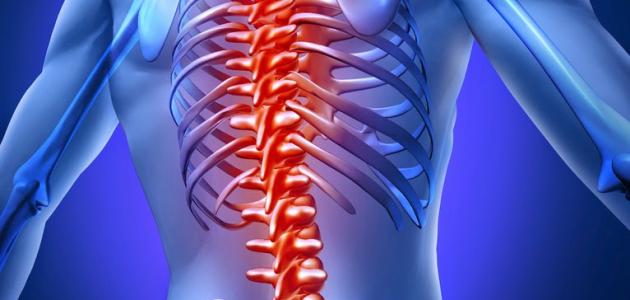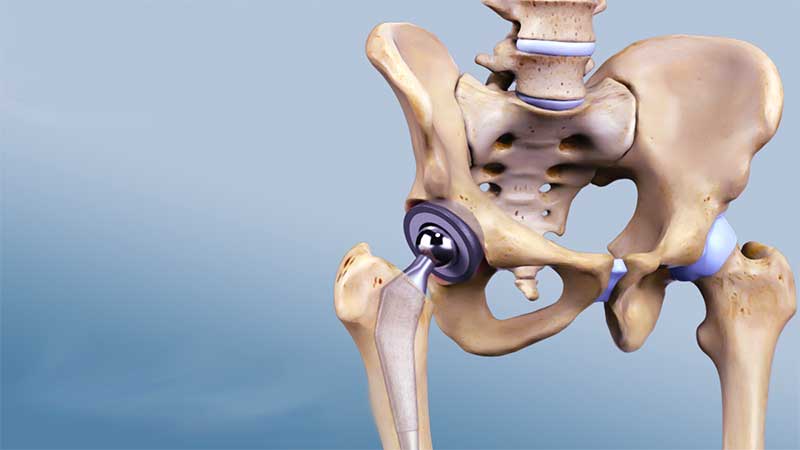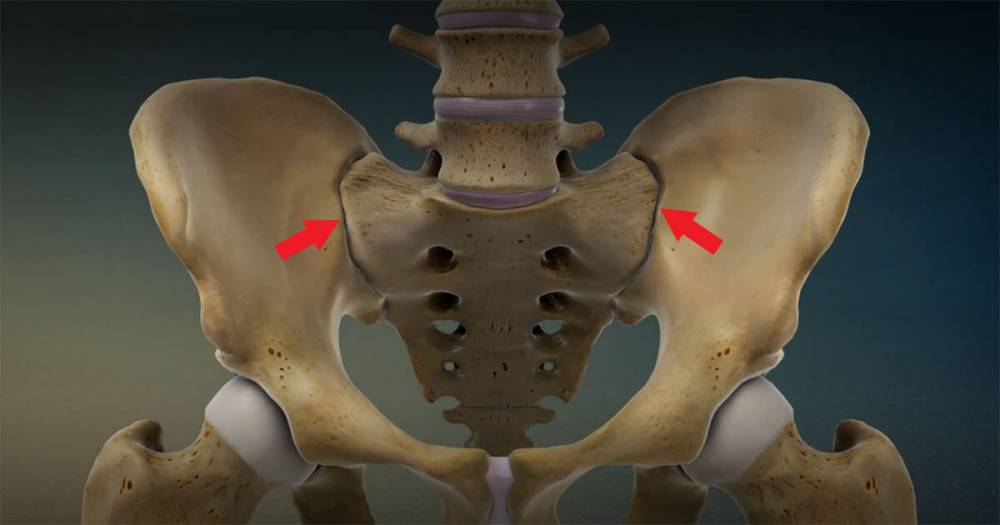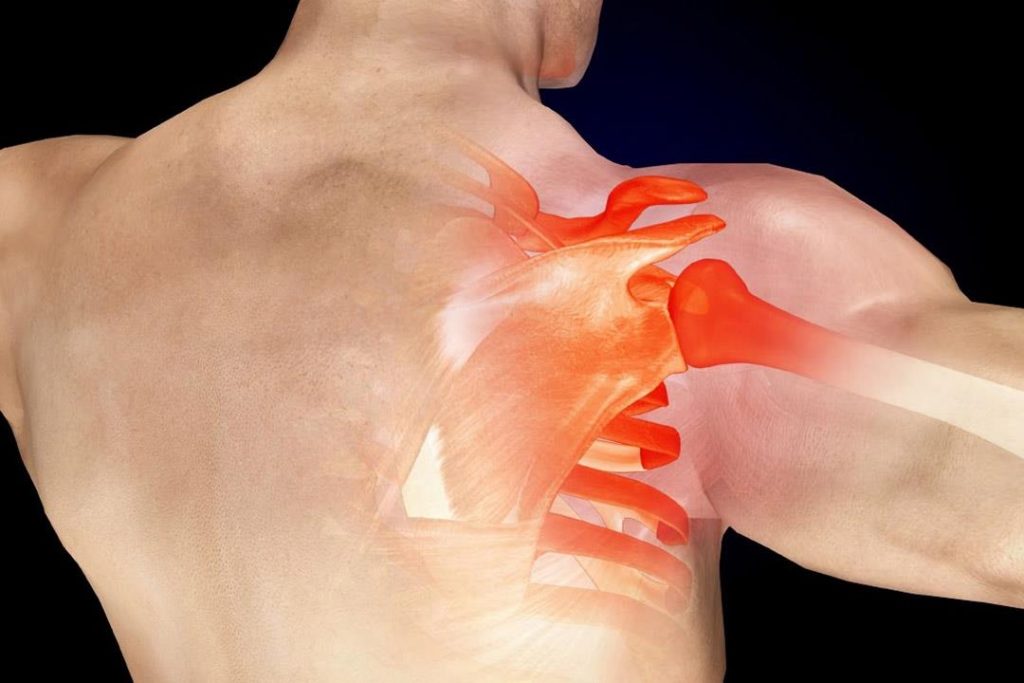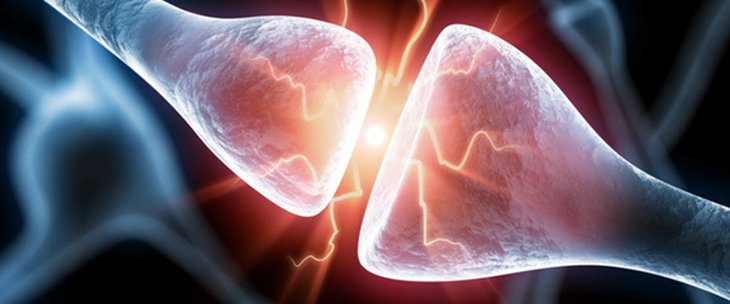Learn more about neck disc operations and when a patient may undergo discectomy
Neck disc operations, in this article, we will discuss neck disc operations in detail and get acquainted with different types of operations and when they are suggested, and we will discuss the techniques and procedures used in these operations. We will also shed light on the recovery process and patient care after surgery, and provide advice on how to relieve pain and restore daily life after surgery. Our goal through this article is to provide the necessary information and guidance for individuals facing a decision to have neck disc surgery, so that they can better understand the procedure and make an informed decision about effectively treating their health problems.

Neck disc operations
Neck disc operations are surgical procedures performed to treat spinal problems in the neck area. Cervical disc surgeries are among the latest surgical techniques used worldwide for this purpose. There are multiple techniques used in these operations, including replacing the damaged disc with an artificial disc, removing the damaged disc and fusing the vertebrae using a bone graft. In the case of replacing the damaged disc with an artificial disc, microscopic surgical techniques are used under general anesthesia and this operation takes between one to two hours. The patient is usually discharged after the operation.
In the case of removing the damaged disc and fusing the vertebrae using a bone graft, endoscopic surgical techniques are used. This technique is characterized by minimal displacement of the artificial disc from its natural position over time. As a result of technological developments in medicine, neck disc operations have become safe and effective in treating spinal problems in the neck area. These operations help relieve pain and restore normal neck movement. However, the individual condition of each patient must be assessed and the specialist doctor consulted before making a decision to undergo neck disc surgery.
The cost of neck disc surgery is reasonable and comes with high quality at Dr. Amr Aml’s clinic.
What is endoscopic cervical discectomy?
Endoscopic cervical discectomy is a surgical procedure used to treat slipped cervical discs and relieve associated symptoms. Cervical disc herniation is a condition characterized by the slipping of the intervertebral disc between the cervical vertebrae, leading to compression on the nerve roots, pain, numbness, muscle weakness. Endoscopic cervical discectomy is one of the surgical procedures that uses small instruments under a surgical microscope to remove the damaged disc from the patient’s neck. The procedure is performed under general anesthesia and usually takes between one to two hours.
The neurosurgeon makes a small incision above the affected disc. Then, a thin endoscope tool is inserted through the minimized incision to explore and remove the damaged disc. The surgeon relieves the pressure on the spinal cord and affected nerve root. Endoscopic cervical discectomy is considered a safe and effective procedure with a relatively high success rate in relieving symptoms of cervical disc herniation. It is also an alternative to traditional open surgery, providing faster recovery and shorter hospital stay.
In general, endoscopic cervical discectomy is recommended for people with severe, chronic symptoms that do not respond to conventional treatments. Before the procedure, the patient’s condition is evaluated and the urgent need for surgical intervention is determined. The patient must carefully follow post-operative care instructions to promote wound healing and minimize complications. Strenuous physical activity and lifting heavy weights should be avoided for a specified period of time until strength and normal movement of the neck is restored.
Dr. Amr Aml understands the importance of cost and helps find suitable financial solutions.
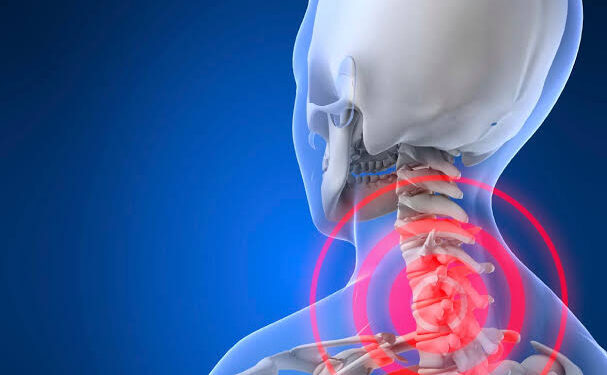
When should a patient undergo discectomy?
Disc herniation is one of the most common spinal disc conditions, and it may require surgery for discectomy. Many people suffer from severe pain and nerve compression due to a slipped disc, affecting their quality of daily life. Therefore, patients sometimes need to undergo surgery to get rid of these annoying problems. Here are some signs that a patient should look for when deciding to undergo discectomy:
- Persistent pain: If the patient’s condition does not improve after taking pain medication, and the pain persists for more than a month, surgery may be the best option.
- Impact on movement: If the pain negatively impacts the ability to perform basic daily activities like walking or standing for long periods, discectomy may be necessary.
- Numbness and paralysis symptoms: If there is decreased sensation or muscle weakness due to compressed nerve roots, surgery is recommended to relieve pressure on the nerves and restore their normal functions.
- Worsening symptoms: If the patient notices an increase in pain intensity or an increase in associated symptoms over time, it may be necessary to resort to surgery to prevent worsening problems related to disc herniation.
- Failure of conservative treatment: If conservative treatment, including low-impact physical activity, physiotherapy and pain medication, has not worked effectively, surgery may be the necessary alternative to improve the patient’s condition.
It is worth mentioning that the decision to perform discectomy depends on the assessment of the treating physician and their evaluation of the individual condition of the patient, in addition to the symptoms and their severity. Doctors often take a gradual approach to treatment, preferring to try non-surgical solutions first before resorting to surgery.
Ultimately, the goal of discectomy is to improve the patient’s condition, reduce pain, and enhance their quality of daily life. In some cases, surgery is the best option when conservative treatment cannot achieve the desired results. Patients should consult specialist doctors to evaluate their personal conditions and make appropriate decisions based on their recommendations.
Learn about payment options and cost reductions for neck disc surgery with Dr. Amr Aml.
People most prone to cervical disc herniation
Cervical disc herniation injury is one of the common problems that affect many people, and this slip may occur in any part of the spine, but the cervical vertebrae are the most prone area for this type of injury. In this article, we will learn about the people most prone to cervical disc herniation.
Cervical muscle congestion: Cervical muscle congestion is one of the common causes of cervical disc herniation, and this condition is common in people suffering from psychological stress or emotional tensions. This congestion results from the contraction of the neck muscles and their improper relaxation, which increases the likelihood of disc herniation in this area.
People with poor work postures: People who do jobs that require long periods of sitting without breaks, such as office workers, are more prone to cervical disc herniation. These people are exposed to long periods of standing in an uncomfortable position, which leads to excessive loading on their spine, and thus increases the likelihood of disc herniation in the neck.
People with an unhealthy lifestyle: Lack of physical activity and maintaining muscle fitness and the spine is one of the reasons that increase the likelihood of cervical disc herniation. People who tend to laxity, laziness and lack of exercise have weak muscles that are unable to withstand the pressure resulting from movement, making them prone to disc herniation.
Frequently lifting heavy weights: People who work in fields that require frequent heavy lifting, such as construction workers, athletes and mechanics, are also prone to cervical disc herniation. Lifting heavy weights puts great pressure on the neck and increases the chances of cervical disc herniation.
Following wrong behaviors in daily life: Some wrong habits and behaviors in daily life are among the factors that increase the likelihood of cervical disc herniation. For example, sitting in incorrect postures for long periods without changing position, or constantly using mobile phones in unhealthy positions, can lead to muscle tension in the neck. neck and excessive load on the disc.
We care about your financial comfort and offer an affordable cost for neck disc surgery with Dr. Amr Amal.

Steps to remove neck disc by endoscopy
Steps to remove neck disc by endoscopy. Endoscopic neck disc removal surgery is one of the surgical procedures that help relieve slipped disc pain, improve the patient’s condition. This operation is considered a low risk procedure, and meets the desire of many patients to avoid traditional surgery. In this article, we will discuss the steps to remove the neck disc by endoscopy as follows:
- Patient preparation: The procedure begins by preparing the patient, which is done by applying local anesthesia, where the area to be worked on endoscopically is anesthetized. This type of anesthesia is safe and effective, as doctors are keen to provide complete comfort to the patient during the operation.
- Determine the incision site: After anesthetizing the area, the surgeon determines the incision site using a miniaturized tool that is inserted through the skin and is used to clearly show the internal neck structure.
- Disc removal: The disc is removed by placing a small endoscope in the affected area and carefully directing the endoscope towards the affected disc for careful removal. The damaged part of the disc and the part compressed on the nerves are removed.
- Disc replacement (if necessary): It may be necessary to replace the damaged disc with an artificial one, which is done by placing the replacement disc in the proper place after removing the damaged disc.
- Closing wounds: After completing the removal and replacement procedure (if there is disc replacement), the wounds are carefully and securely closed. The surgeon uses dissolving sutures or tape to keep the wounds closed and promote healing.
- Follow-up after surgery: After surgery, instructions are provided to the patient on the necessary care and what to expect from the healing process. The patient may be asked to take pain relievers and avoid certain activities for a specified period of time.
People looking to have neck disc removal surgery should consult a specialist to evaluate their health condition and determine if this procedure is suitable for them. The patient should be aware that this procedure is not an option for all cases, and that there may be other alternatives available based on the medical evaluation.
The cost of neck disc surgery with Dr. Amr Amal reflects his understanding of patients’ needs.
Pre surgery preparations for neck disc
Neck disc surgery is one of the surgical procedures that requires good preparation before it is performed to ensure the success of the surgery and reduce potential complications. In this article, we will shed light on 5 important guidelines that patients should follow before undergoing neck disc surgery.
1. Doctor’s visit and comprehensive medical evaluation
First of all, the patient must visit his doctor and undergo the necessary medical evaluation. The doctor thoroughly examines the patient, learns about his medical history, and works to generally assess his health condition. This procedure helps identify any health issues that need to be treated before surgery and avoid potential complications.
2. Psychological preparation and necessary information
Neck disc surgery can be mentally exhausting for the patient, so he should have the necessary information about the surgery. It is advisable to ask questions to the treating physician and get comprehensive answers. Also, reliable online resources can be used to obtain additional information about the surgery, such as how to prepare for it and post-surgery symptoms.
3. Compliance with prior medical instructions
Based on the doctor’s evaluation, the patient may need to follow some prior medical instructions to prepare him for surgery. These instructions may include stopping taking certain medications, such as anesthetics, a specified period before surgery. The patient may also be asked to refrain from eating and drinking fluids for a certain period before surgery.
4. Mental preparation and home readiness
Before returning home from the hospital after surgery, the patient must prepare for the return home and ensure his comfort and safety. It must be ensured that there is assistance at home, especially if the operation requires a long period of rest. It is also necessary to prepare essential items such as comfortable pillows and easy-to-wear clothes.
5. Starting physiotherapy after surgery
After microscopic neck disc removal surgery, the patient should start physiotherapy a few weeks after the operation. Physiotherapy helps promote body recovery and restore normal neck movement. This treatment should be supervised by physiotherapy specialists to ensure maximum benefit.

Advantages of Neck Disc Removal Surgery by Endoscope
Many people may suffer from neck problems such as neck stiffness, rigidity and limited range of motion. These problems can cause severe pain and discomfort. Fortunately, there is an innovative surgical procedure called “Neck Disc Removal by Endoscope” which is an effective solution for this problem. Here we will review a set of important advantages of this surgical procedure:
- Pain Relief: Pain relief and comfort improvement is one of the most important benefits of neck disc removal surgery by endoscope. The patient experiences a shorter and less painful recovery period compared to traditional surgery.
- No Need for General Anesthesia: This type of surgery is an advanced procedure and the patient does not need general anesthesia, local anesthesia is enough. This reduces potential health problems for the patient, especially if they have any chronic diseases or heart conditions.
- Duration of Surgery: Neck disc removal by endoscope is characterized by not taking a long time compared to traditional surgical procedures. As it is a quick and effective procedure, it can be performed in a short time ranging from one to two hours, saving time and reducing fatigue and exhaustion for the patient.
- High Success Rate: Neck disc removal surgery by endoscope is extremely successful, with the success rate for this surgery reaching more than 90%. This means that thanks to this surgery the patient can effectively get rid of problems associated with neck discs.
- Improved Quality of Life: In addition to relieving pain and discomfort, neck disc removal surgery by endoscope enhances movement and flexibility in the neck. This surgery restores vitality to patients, allowing them to perform daily activities normally and generally improve their quality of life.
- Possibility to Return Quickly to Normal Life: Due to the rapid recovery and limited pain after neck disc removal surgery by endoscope, the patient can return to normal life quickly as they can resume routine activities and daily tasks as soon as possible.
In summary, the advantages of neck disc removal surgery by endoscope include pain relief, no need for general anesthesia, short surgery time, high success rate, improved quality of life and the possibility to return quickly to normal life. People suffering from neck problems are encouraged to contact spine doctors to inquire about the possibility of undergoing this surgery and benefiting from its advantages.
Is it Possible to Live with a Neck Disc?
Neck disc is one of the most common health problems that people face worldwide. Neck disc causes severe pain and difficulty moving. Therefore, patients need to look for information on whether it is possible to live with this medical condition? This article provides important advice and information on how to live with a neck disc.
1. Gentle Exercise: Being regularly physically active with gentle exercise may benefit people with neck disc. Stretching exercises and strengthening neck and back muscles that help improve muscle strength and relieve pain are recommended.
2. Healthy Diet: Patients should be careful to eat healthy and balanced food containing the vitamins and minerals necessary for bone and cartilage health. Foods rich in magnesium, calcium and vitamin D are recommended, such as fish, dairy and leafy vegetables.
3. Using Pain Relief Methods: There are many methods that can be used to relieve the pain caused by a neck disc, such as temporarily using ice or topical application of analgesic creams. A doctor should be consulted before using any method of pain relief to ensure the patient’s safety.
4. Avoid Excessive Movement: Sudden harsh movements that may adversely affect the cartilage in the neck area should be avoided. It is advisable to avoid sudden changes in movement, avoid lifting heavy weights and prolonged sitting in the same position.
5. Regularly Consulting an Orthopedic: It is important for patients to visit an orthopedist regularly to assess their condition and adjust treatment if necessary. The doctor can provide additional advice and guide patients to appropriate treatment such as physiotherapy or medication therapy if necessary.
Knowing how to live with a neck disc is an important step to improve the quality of life for people suffering from this health problem. It is advisable to talk to your treating physician for more specific guidance and to ensure that the procedures followed are safe and effective.

Complications of Neck Disc Surgery
- Severe Bleeding: Severe bleeding is one of the prominent complications after neck disc surgery. Bleeding may occur inside or around the spine, leading to formation of blood clots that compress nearby nerves and blood vessels. In cases of severe bleeding, the condition may require immediate surgical intervention to stop the bleeding and avoid more serious complications.
- Allergic Reaction to Anesthesia: Some patients may have an allergic reaction to the anesthesia used during neck disc surgery. Symptoms of hypersensitivity may appear such as itching, rash, shortness of breath, and low blood pressure. This reaction may require rapid medical intervention to manage symptoms and avoid serious complications.
- Chronic Neck Pain: In some cases, some people may suffer from chronic neck pain after neck disc surgery. This may be due to accidental damage to nearby nerves, blood vessels, spinal cord, esophagus or vocal cords during surgery or due to the effect of surgical intervention on these tissues. It is important to consult the treating physician to properly evaluate and manage such chronic pain.
- Damage to Nerves, Blood Vessels, Spinal Cord, Esophagus or Vocal Cords: Accidental damage may occur to the nearby nerves, blood vessels that are near the area where neck disc surgery is performed. This damage can lead to complications such as weakness in arm or leg sensation or movement, difficulty swallowing or speaking, or voice changes. These complications are treated by a specialized medical team and depend on each individual’s condition.
- Artificial Disc Displacement Over Time: The artificial disc, used to replace infected or damaged disc, may be displaced from its normal position over time. This is a rare complication, but may require surgery to repair disc displacement if it causes disturbing symptoms or neck function disorders.
- General Complications of Any Surgery: Although complications of neck disc surgery are rare, it is important to note that general complications of any surgery may include bleeding, infection, blood clots, respiratory or drug hypersensitivity. The patient must adhere to the necessary post-operative care instructions and monitor any worrying symptoms and communicate with the medical team to get the necessary care.
Anyone considering undergoing neck disc surgery should consult their specialist doctor to understand potential risks and possible complications and make an appropriate decision based on their individual health condition and other influencing factors.
Dr. Amr Aml offers flexible financing options to make the cost of neck disc surgery affordable.
How Much Does Cervical Disc Surgery Cost in Egypt?
Cervical disc surgery is an important and available surgical procedure in Egypt to relieve the patient’s pain and reduce the symptoms of disc herniation. There are several factors that affect determining the cost of this surgery, such as the place of surgery, the type of affected vertebrae, and the results of medical examinations conducted before surgery.
The cost of cervical disc surgery in Egypt generally ranges between 50,000 to 100,000 Egyptian pounds, and this cost may vary slightly from one center to another, depending on the standards followed by each center.
Neck pain stems from several causes, such as roughness of the cervical vertebrae or slipping between them, which leads to narrowing of the spinal canal. The cost of a slipped disc surgery ranges between 25,000 to 70,000 Egyptian pounds, and may be slightly higher or lower, depending on the diagnosis and type of required surgery. The doctor must accurately assess the patient’s condition, determine the symptoms they are suffering from, and conduct the necessary tests and analyses before determining the surgery price. This depends on referring the patient to specialized centers in this field.
An outstanding experience comes with a reasonable cost for cervical disc surgery with Dr. Amr Aml.
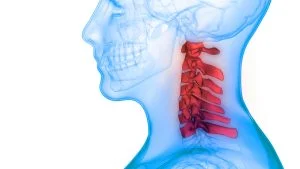 How Much Does Cervical Disc Surgery Cost in Egypt?
How Much Does Cervical Disc Surgery Cost in Egypt?Who is the Specialist in Treating Cervical Vertebrae?
Dr. Amr Aml is a specialist in treating cervical vertebrae, and is considered one of the best doctors in this field. Dr. Amr enjoys great fame due to his high skill and precision in treatment procedures, which is why patients completely trust him to improve their condition and restore their vitality. The recovery period after cervical disc surgery varies and depends on each patient’s condition. Nevertheless, Dr. Amr Aml guarantees to provide patients with specialized and outstanding care to facilitate and accelerate the recovery process.
Dr. Amr Aml is renowned for providing a comprehensive treatment program that targets cervical spine problems and accompanying neck pain, which helps patients fully regain their activity and health.
Dr. Amr Aml’s popularity stems from his main distinctive features. He has extensive experience in treating slipped discs and is a member of the Orthopedic Surgery Society and Spine Surgery Society. Dr. Amr Aml understands the importance of treating chronic neck pain and its impact on people’s lives. Therefore, he works to provide comprehensive and individualized care for each patient.
Dr. Amr uses the latest techniques and necessary surgical procedures to improve and enhance the patient’s condition, including minor surgery procedures if necessary.
Dr. Amr Aml cares about the comfort and satisfaction of patients, which is why he receives many positive reviews and good ratings from his patients.
Dr. Amr’s team complements him in providing personal care and continuous support throughout the patient’s treatment period. Dr. Amr Aml represents the ideal choice for people suffering from cervical spine problems and chronic neck pain. He provides excellent and diverse medical services to improve patients’ condition and return them to an active and healthy life.


